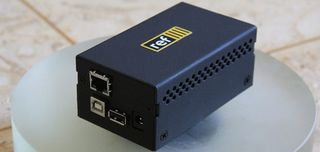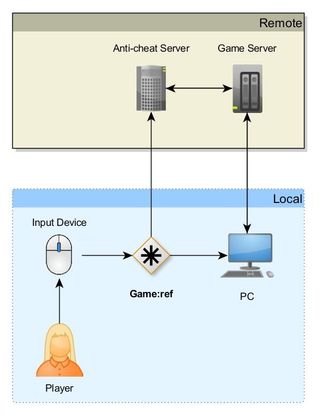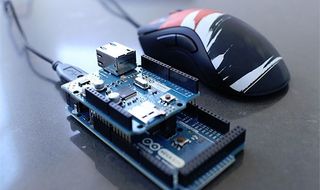Introducing Game:ref - the anti-cheat hardware

Stopping cheaters is something we're all for - well, those of us who aren't cheaters, at least - and it's something those on the software side have been trying to eliminate for a long time now. But what about on the hardware side? A new project, just launched on Kickstarter, aims to fill that particular void when it comes to professional esports - and, hopefully, all online PC gaming.
Game:ref is the brainchild of David Titarenco, an LA-based software engineer and former Counter-Strike: Source pro player. It is, boiled down to its essence, anti-cheating hardware - you plug your mouse into it, and it checks the input signals match up to what the game says is happening.
"An easy way to understand it is by looking at how a triggerbot works," Titarenco explained to me, "The idea of a triggerbot is that the software cheat 'simulates' a mouse press when someone is in your crosshairs. But the player doesn't actually click! So with Game:ref, we can see that. This is a very simple concept that people find intuitive. Catching aim-bots is a bit more mathematically involved, but the idea is very similar. This same method applies to auto-hex cheats in DOTA2, and auto-lasthitters in League of Legends."

This is, of course, an anti-cheat solution that relies on the player using it on their machine - it doesn't detect cheating by other players. It makes sense, as it's designed for adoption by LAN tournaments (where a simple visual check can be done to make sure nobody is cheating) and professional gaming in general. Titarenco does hope, though, that Game:ref's adoption will spread to non-pro, everyday players too.
I raised a couple of potential issues - latency and Game:ref itself being flagged as a cheat device by something like VAC, but Titarenco said neither was an issue. Latency clocks in at around 200 microseconds (less than a single millisecond) and anti-cheat software simply can't detect the hardware, so no false flags can be raised.

It's an interesting idea and - if it works - is sure to be a valuable tool for professional tournaments. The opt-in nature of it means it might not be the cure-all solution for everyday play, as others can simply not use it and carry on cheating - though you get around this by having Game:ref-only matchmaking.
But then there's always the chance that committed cheaters could piece together their own passthrough hardware to counter the anti-cheat hardware so it wouldn't detect the falsified signal and oh god my brain's melted a bit. That, Titarenco admitted on Reddit, is something of an Achilles heel for the hardware - though one that only the most committed, tech-savvy and happy-to-spend cheaters would take advantage of.
The biggest gaming news, reviews and hardware deals
Keep up to date with the most important stories and the best deals, as picked by the PC Gamer team.
Titarenco's Kickstarter sets the price of the Game:ref at $125, and he's looking for $200,000 to fund what he calls the final stages of development, with a rough release date set for July 2016. If you're looking for a much more technical explanation of the hardware, check out this blog post.
Most Popular






